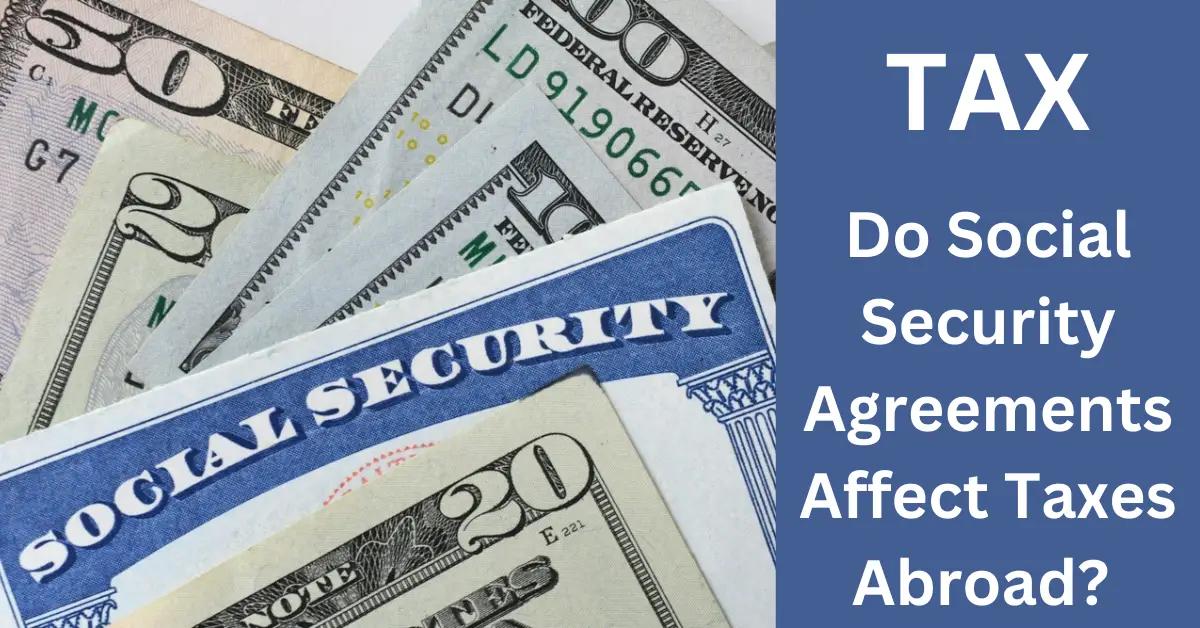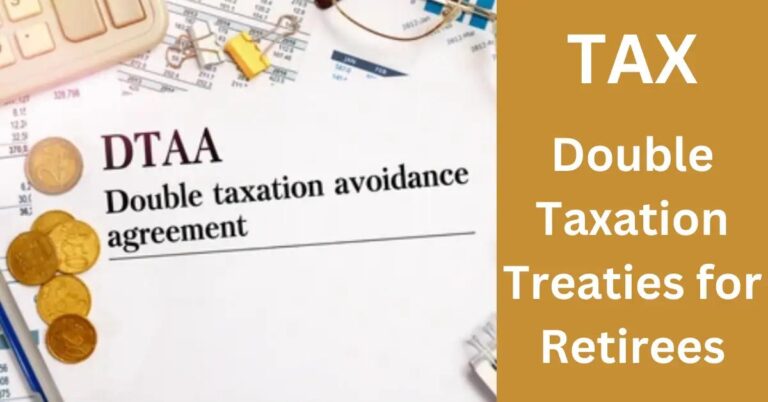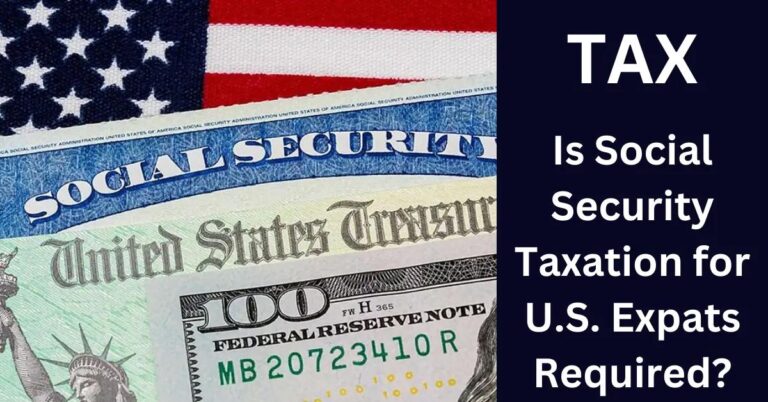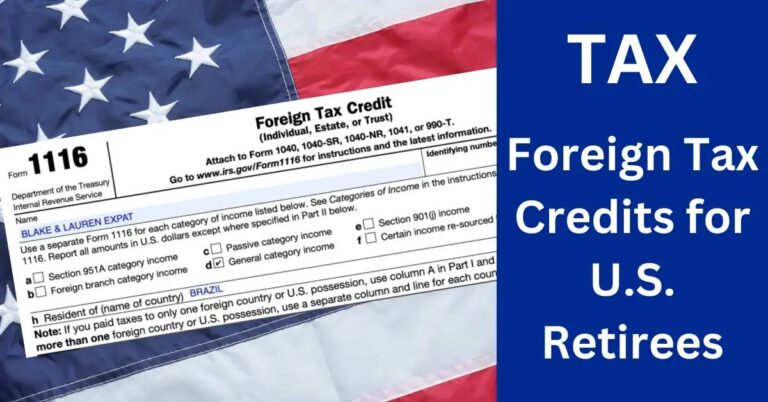TL;DR:
- International social security agreements prevent double taxation on earnings and benefits for those working in multiple countries.
- The U.S. has agreements, known as totalization agreements, with nations like Canada, Germany, and Japan.
- Agreements allow combining work credits from different countries to qualify for benefits.
- They assign the responsibility of social benefits based on work location and help coordinate healthcare benefits.
- Tax treaties exist with certain countries to avoid U.S. taxation on Social Security, but each treaty is unique.
- Expatriates can collect U.S. Social Security abroad, but some countries impose restrictions.
- The Foreign Earned Income Exclusion can reduce taxable income for expatriates.
- Proper planning and understanding of agreements and exemptions help optimize social and tax benefits globally.
Navigating Social Security and taxes can be tricky when living abroad. Ever wonder how Social Security agreements affect your taxes? These international agreements have a big impact on your finances. Sure, they sound complex, but understanding them can save you money. We'll break it down simply, exploring tax treaties, Social Security exemptions, and credits that'll ease your tax burdens. Stick with me, and let's make sense of your global Social Security benefits!
International Social Security Agreements: What Are They and Why Do They Matter?
An international social security agreement is a deal between countries. It helps people who work in more than one country. It protects them from paying social security taxes twice on the same earnings. This means they can avoid double taxation on their benefits.
The United States has agreements with many countries. These are called totalization agreements. They cover countries like Canada, Germany, and Japan. These deals help people who move and work across borders.
Why are these agreements important? They help you save money by not paying social security taxes twice. They also allow you to combine work credits from two countries. This is important to meet the requirements for benefits. It means you don’t lose your benefits if you work abroad.
With these agreements, coordinating social benefits across borders becomes easier. Imagine you’re an expatriate working in another country. You want to ensure your social security contributions count. Totalization agreements ensure contributions in one country count toward benefits in the other.
One key point is the international allocation of social benefits. Such agreements help assign these benefits fairly. If you work in two countries, the agreement assigns the responsibility. Thus, benefits are allocated based on where you've worked.
Countries with social security agreements try to make your life easier abroad. For example, the agreement decides the rules for paying social security taxes. It also coordinates with the healthcare benefits where applicable.
Finally, these agreements play a huge role in planning. If you plan to live or work abroad, they matter. They inform you about tax obligations you might face. Proper planning helps maximize your benefits while minimizing tax burdens.
To learn more, the U.S. Social Security Administration provides details about these agreements and their benefits. Understanding these can impact your financial security abroad.
How Do Social Security Agreements Impact Taxation Abroad?
Social security agreements can greatly impact taxes abroad, often helping you avoid paying double taxes. These agreements between countries work like magic to keep your wallet from shrinking. They allow you to pay only to one government. This helps those of us earning abroad feel more settled and secure.
Is my Social Security taxable if I live abroad? Yes, it is, but some rules apply. In most cases, if you earn enough, some of your Social Security could be taxed by the U.S. tax authorities. It depends on your total worldwide income. This means your income from work abroad might make a difference in how much tax you owe.
How does foreign income affect Social Security? Your foreign income could change the taxes on your Social Security benefits. If your foreign earnings push your total income above certain limits, expect more taxes on your benefits. That's why understanding where your money comes from is crucial.
Sometimes, applying for foreign tax credits can be a smart way to reduce your overall tax load. They allow you to credit the taxes you pay abroad against your U.S. tax bill. This way, you aren't double-paying tax for the same income.
Which countries' Social Security exempt from U.S. taxes? Not all countries make the list. Fortunately, tax treaties exist with quite a few. Countries like Canada, Germany, and the United Kingdom have agreements with the U.S. These treaties provide certain exemptions if you pay social security taxes there.
Keep in mind whether you're liable for local or U.S. taxes boils down to the kind of agreement in place. Each agreement varies, so don't assume the same rules apply everywhere. Always check the country-specific deal to dodge a costly error. By understanding these agreements, you can make informed choices and keep more in your pocket while living abroad.
How Can Expatriates Optimize Their Tax and Social Security Benefits?
You can optimize taxes and social benefits while living abroad. Social Security agreements are vital to this process. They help avoid double taxes and offer you the best benefits possible.
The first step is understanding your tax obligations overseas. Each country might have specific rules for expatriates. You should seek professional help to comply with these regulations. Tax compliance prevents legal issues and saves money in the long run.
Fulfill your social security obligations abroad by knowing the agreements between nations. These agreements, called totalization agreements, ensure you do not pay contributions twice. These agreements also help you earn Social Security credits even when abroad, keeping you on track for future benefits.
You might wonder if a U.S. citizen can still get Social Security when living abroad. Yes, you can. The United States allows citizens to collect Social Security benefits overseas. But some countries have restrictions that may limit payment.
What happens to your Social Security if you move abroad? If you check the Social Security website, you can see who can receive benefits in what countries. This varies depending on local agreements and laws.
Would you like to lower your taxable income? The Foreign Earned Income Exclusion (FEIE) is a great tool for that. To use FEIE, you need to pass either the physical presence test or the bona fide residence test. The exclusion lets you reduce taxable foreign income and save more money.
Managing social security credits is crucial for expatriates. Make sure your work credits count. Keep track of each country's rules you work in.
Using these strategies, you can stay compliant, save money, and protect your benefits abroad. Always stay informed and up-to-date with the current laws and options available to you, as they can change frequently.
What Are the Tax Implications of International Social Security and Retirement Planning?
Is my Social Security taxable if I live abroad? It depends on where you live. Some countries have agreements with the U.S. to avoid double taxation. These agreements can help lessen your tax burden. But remember, you might still owe taxes to the U.S. on your Social Security.
What happens to my Social Security if I leave the country? Your Social Security benefits generally continue. But specific rules depend on where you move. Some places have restrictions. For example, North Korea and Cuba have limitations. You should check the official source to make sure.
Retirement planning gets tricky because of international social security agreements. These agreements determine how pensions are taxed overseas. If you live in a country with a social security agreement, it might change your tax situation. Knowing these rules helps you plan your retirement better.
Your residency status affects your global tax obligations. If you are a resident abroad, local taxes may apply to you. Conversely, in some cases, your home country might not tax your foreign income. This situation largely depends on local tax laws and bilateral agreements.
Managing global income reporting is crucial for retirees. You need to report your worldwide income correctly. Keeping accurate records helps you avoid problems. Misreporting income can lead to penalties. Use the available resources and tools for smooth reporting.
It's important to plan for international retirement benefits. Planning minimizes tax burdens and maximizes benefits. Look into available tax exemptions and credits. They can help lighten your financial load. Careful planning ensures your retirement income is secure and tax-efficient.
Conclusion
Navigating international social security agreements can be complex, but it's crucial. These agreements help expatriates avoid double taxation and coordinate benefits globally. Understanding tax treaties and social security obligations ensures you receive the benefits you're entitled to. You can reduce taxes by leveraging foreign tax credits and the earned income exclusion. Proper planning can also minimize headaches in retirement. Living abroad doesn't mean losing your Social Security benefits, but knowing the rules is key. Stay informed so you can focus on what really matters: enjoying life in a new country.












